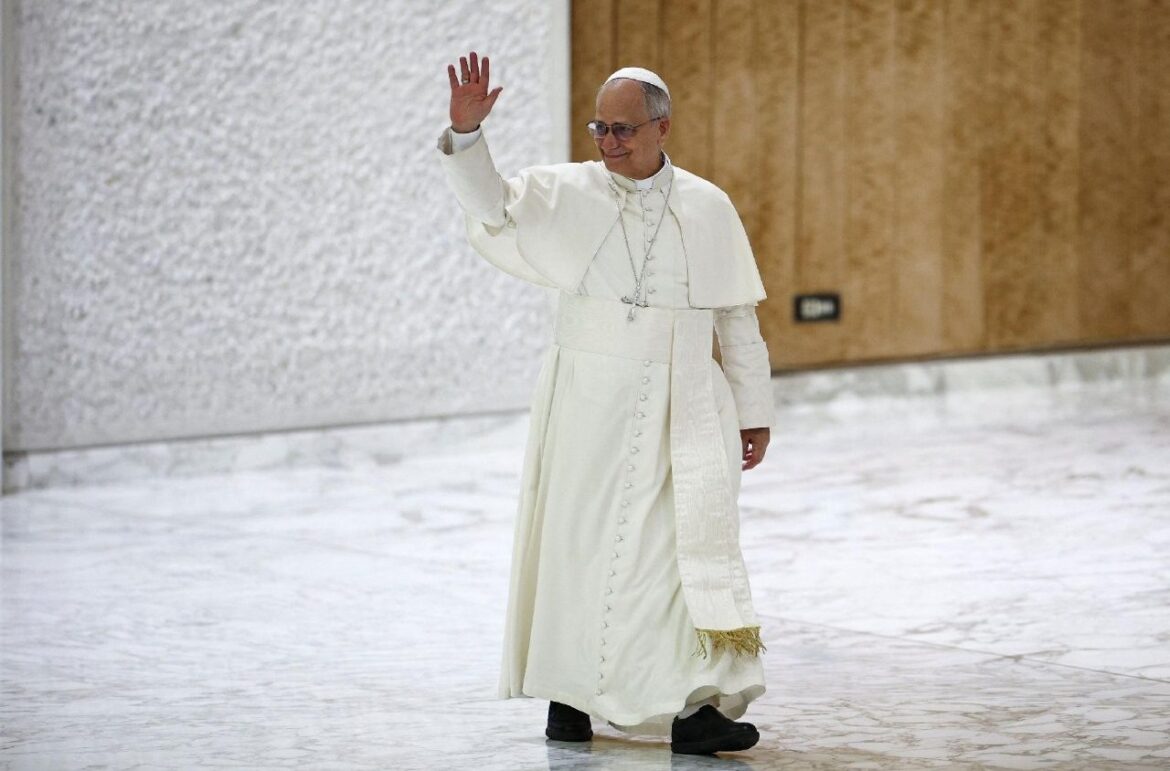
During his weekly General Audience, Pope Leo reflects on Jesus’ arrest in the Garden of Gethsemane, highlighting that in these moments of fear, injustice and loneliness, God is present.
By Kielce Gussie
Continuing his cycle of catechesis for the Jubilee Year of Hope, Pope Leo XIV focused on Jesus’ Passion during this week’s Wednesday General Audience, specifically highlighting the moment of His arrest in the Garden of Gethsemane.
St. John the Evangelist does not portray Jesus as frightened or as someone who flees the scene. Rather, Jesus is depicted as a “free man, who comes forward and speaks, openly facing the hour in which the light of the greatest love can be revealed.”
Not a victim but a giver
Jesus was not unaware of what He was to endure following the arrest. Yet, he still remains strong and does not retreat, but rather, gives Himself up to the guards. As Pope Leo points out, this act was done “not out of weakness, but out of love.” A full love that is mature and does not fear rejection.
Jesus is not a victim of the arrest because He lets Himself be taken. He is the “giver of a gift” as He “embodies a hope of salvation for our humanity: to know that, even in the darkest hour, one can remain free to love to the end.”
True act of love
The Pope highlights a passage in the Gospel that is mysterious—the moment Jesus says, “I am he”, and the soldiers fall to the ground. It is a moment that, in biblical revelation, recalls God’s name, “I am”. In that moment in the garden, Jesus is showing that God is present exactly in the times when people experience injustice, fear, and loneliness. Pope Leo explains it is in moments like those that “the true light is ready to shine without fear of being overcome by the advancing darkness.”
In the darkness of night, when all seems to be falling apart, Jesus shows that Christian hope is not evasion but decision. The Pope underlines that this attitude comes from a deep prayer in life where “God is not asked to spare us from suffering, but rather to give us the strength to persevere in love”.
Pope Leo continues, highlighting that during His arrest, Jesus is not worried about himself. On the contrary, He is focused on saving the disciples. This reveals that His sacrifice is truly an act of love—He is taken so His friends might go free.
A lifetime of preparation
Jesus had been preparing for this “dramatic and sublime hour” his entire life, the Pope underlines, and it is for this reason that he responded courageously. He understood that offering up one’s life for love does not mean failing, but rather it means being fulfilled.
However, this does not mean that Jesus was not troubled at this moment that began his path to the cross. But He was able to carry on because He knew He was offering up His life out of love.
“This is what true hope consists of: not in trying to avoid pain, but in believing that even in the heart of the most unjust suffering, the seed of new life is hidden.”
Turn to the logic of the Gospel
How does all of this relate to us, the Pope asks. Rather than defending our lives, plans, securities, and still being alone, he urges us to turn to the logic of the Gospel. That is, “only what is given flourishes; only the love that becomes free can restore trust even where everything seems lost.”
Using the image of the young man who, when Jesus is arrested, runs away naked, Pope Leo explains we too have moments when we follow Jesus that we are caught off guard and are tempted to abandon the way of the Gospel because it seems impossible to love.
But the story ends with a young man clothed in a white robe announcing the resurrection, which symbolizes the hope of our faith. God is not limited in forgiveness because of our sins and reservations and He is able to restore in us the desire to retake our role as His followers—making us capable of giving our life for others.
Pope Leo concludes his catechesis encouraging everyone to let our lives “be a response to the good we have received.” While we cannot control everything, “it is enough to choose to love freely every day.” Our hope remains that even in the darkest of days, God’s love is there, sustaining us and ripening the fruit of eternal life that awaits us.

